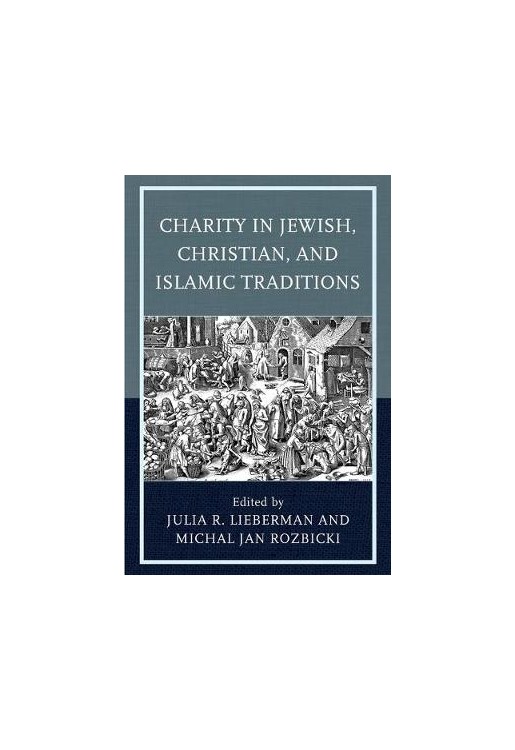This collection compares and contrasts the historical practice of charity among the three Abrahamic religions of Judaism, Christianity, and Islam. The international group of contributors analyzes such topics as virtue, poverty, wealth, and justifications for charity with an aim toward intercultural understanding.
Introduction, Julia R. Lieberman and Michal Jan Rozbicki
Part I: Charity: Some Theoretical Issues
Chapter 1: Is Charity a Two-Faceted Janus? "Othering" Gifts vs. Translating Giving and the Intercultural Uses of Human Rights, Mario Ricca
Chapter 2: Whose Caritas? Which Receptivity? Roman Catholics in Dialogue across Traditions, Gregory R. Beabout
Chapter 3: Interreligious and Intercultural Transfers of the Tradition of Philanthropy, Thomas Adam
Chapter 4: Sadaqa as a Sign of Sincerity: Secular and Spiritual Aspects of Charity in Islam, Fatih Harpci
Chapter 5: From Welfare to Rights in the Jewish Tradition, Melinda Jones
Part II: The Practice of Charity in Judaism, Christianity. and Islam
Chapter 6: New Practices of Sedaca: Charity in London's Spanish and Portuguese Jewish Community during the Eighteenth Century, Julia R. Lieberman
Chapter 7: From Charity to Philanthropy among the Jewish Elite: Emancipation, Modernization, Ethnicity, and Nationalism, Haim Sperber and Riki Galia
Chapter 8: Catholic Reform, the Council of Trent, and the Transformation of Italian Charity, 1500-1800, Philip R. Gavitt
Chapter 9: The Perfect Storm: Social Services and Abuse in North American Catholic Maternity Homes, Elizabeth Patricia Rigotti
Chapter 10: The Heart of a Heartless World: Relations of Power in Faith-based Responses to the Iraqi and Syrian Refugee Crises, Tahir Zaman
Chapter 11: The Practice of Zakat in Northern Nigeria and the Building of Social Relationships, Dauda Abubakar
Chapter 12: Jewish and Muslim Charity in the Ottoman Empire: The Fluidity of Religious Boundaries, Yaron Ayalon




